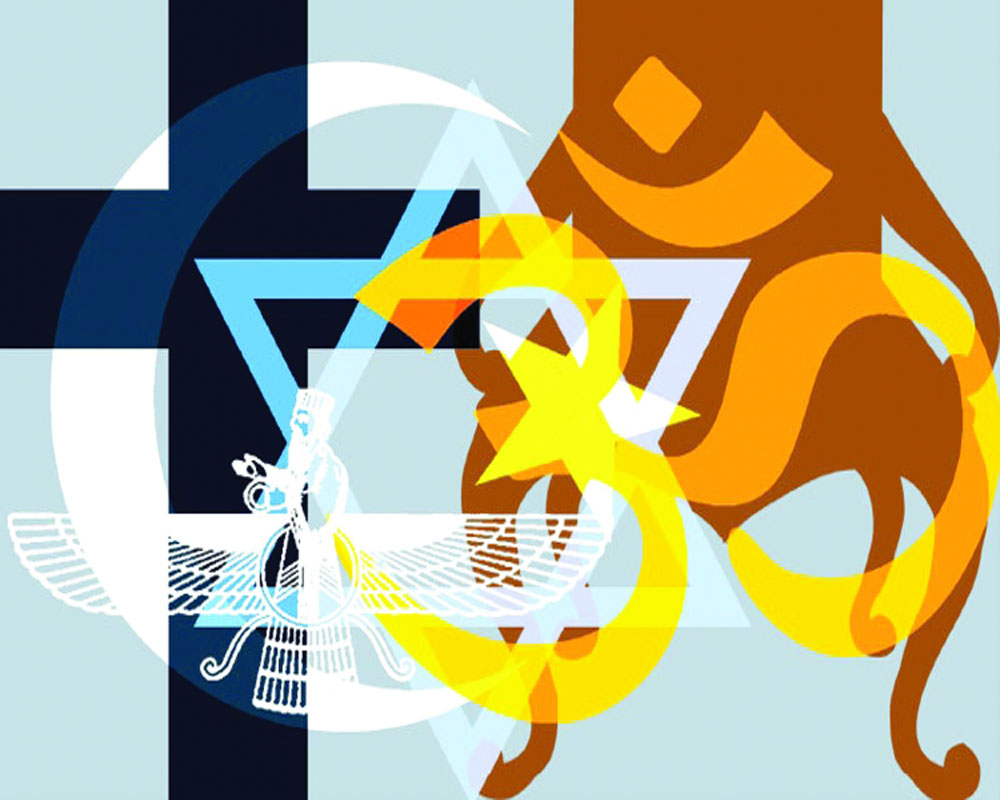The ‘crisis of secularism’ bemoaned by some scholars fails to acknowledge that secularism itself has evolved in a highly complex manner
Analysis emerging from various academic platforms in Europe, the US, Turkey and India in the last five years or so, suggests that the world has entered a “post-secular age.” But critics of this thesis fear that it is conceiving secularism in its most simplistic form. Secularism has evolved in a highly complex manner, as demonstrated by anthropologist Talal Asad and philosopher Charles Taylor.
Both saw secularism emerging from a process of reform during the Middle Ages, so that a society free of superstition, could be formed. Asad’s overall position is that secularism’s origins cannot be pinned entirely to a single occurrence, while Taylor says that the demystification of Christianity aided the once superstitious layman to access a disenchanted understanding of the scriptures. Christian sects such as the Protestant and Calvinist saw having an enterprising disposition as a virtue, as long as it benefitted humanity. This not only seeded the idea of “humanism”, it also gave birth to ideas that formulated the mechanisms of modernity.
According to Asad, Christianity’s spiritual promise that “Christ died to save all humanity” was folded into a political promise “the world must be changed for Christ.” Therefore, both Taylor and Asad see the emergence of the idea of secularism springing not from an averse reaction to religion but from an urge to reform it in a rapidly evolving milieu. To Asad, even though the disenchantment process within Christianity saw it accepting reformist ideas, the traditional notions of Christian morality, for example, did not really wither away. Asad writes that religion was never entirely expelled from the public sphere. Indeed, it was relegated to the private sphere, but religions that were willing to take part in rational debate and accept the new secular paradigm, were welcome to operate in the public sphere.
With the expansion of modernity, the idea of secularism spread from Europe to other regions. But it mutated to accommodate non-Western realities. For example, although it arrived as an inclusive idea that advocated the privatisation of the sacred and the institutionalisation of the profane as a way to construct a rational nationalistic whole, in communist set-ups it radically hardened by completely expunging religion. But this hardness was also present in France.
According to Taylor, whereas secularism elsewhere in Europe had largely emerged from reformed Christianity, in France it had appeared as a revolt against religion (during the 18th century French Revolution). known as ‘Laïcité’ it barely tolerates any display of religion in the public sphere. Unlike inclusive secularism in the US and European countries, where the State remains impersonal towards religion as long as it does not threaten the liberal-democratic order, Laïcité sanctions it to aggressively intervene to discourage religion in the public sphere. Interestingly, this is also the form of secularism that Turkey adopted after it became a republic in 1922.
Most anti-colonial movements also adopted secularism by modifying it to suit their nationalisms. For example, ‘Arab Nationalism’ adopted secularism because it saw its anti-colonial religious contemporaries as competition. It adopted the inclusive secular version, even though Arab nationalist regimes were dictatorial and often jailed leaders of religious groups who challenged the Arab nationalist narrative. According to the French political scientist Christophe Jaffrelot, a unique mutation of secularism emerged in colonial India. Jaffrelot says that followers of the 19th century Indian Muslim scholar Syed Ahmad Khan, politicised his reformative Islamist narrative by forming the Muslim League. Eventually, the party moved towards demanding a separate Muslim-majority State. Syed, and then the early 20th century philosopher and poet Muhammad Iqbal and, eventually, the barrister Muhammad Ali Jinnah formulated what Talal Asad calls “cultural secularism.” Instead of separating religion from politics, they separated the cultural dynamics of Islam from the faith’s theological and ritualistic dimensions, to create a political ideology of cultural separatism.
According to Jaffrelot, they placed Islam as a cultural identity-marker in the public arena, whereas the faith’s theological and ritual aspects were pushed to the private sphere. This is why the founders of Pakistan were never really demonstrative about their religiosity (or lack thereof). They understood Muslim nationalism as a cultural and political idea of a modern Muslim-majority State, but one that would remain impersonal towards Islam’s theological/ ritualistic facets.
Jaffrelot writes that, in 1974, the passage of the Second Amendment constitutionally rolled back the project by making Islam in Pakistan exclusivist. Then, various ordinances between 1979 and 1991 almost entirely expunged the inclusive idea of Islam. This aided various far-Right religious groups to assert themselves in the public sphere, without being challenged by the State.
Secularism is in crisis, but mostly in developing countries. This has been the case for quite some time now. India is the exception, where this crisis is relatively recent. Ironically, the crisis in this context in India is being compounded by the act of treating secularism as it was treated in Pakistan from 1974 onwards. The results were disastrous, as they will be in India too.
Courtesy: Dawn.
The views expressed are personal.


























